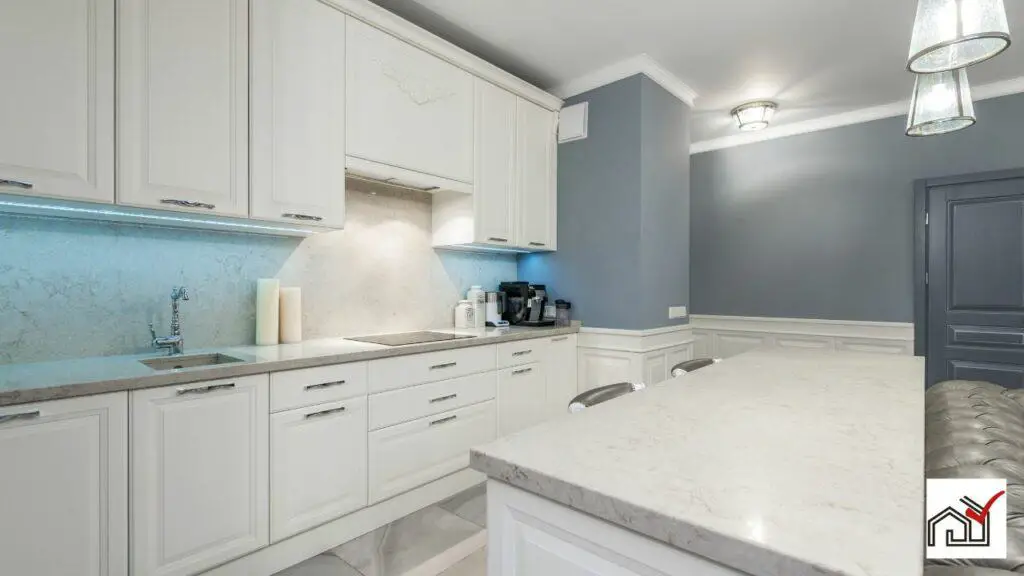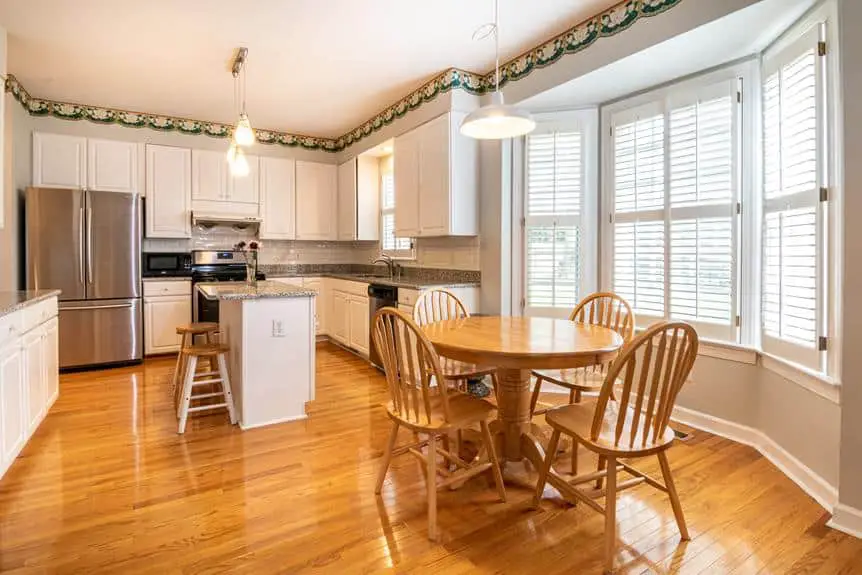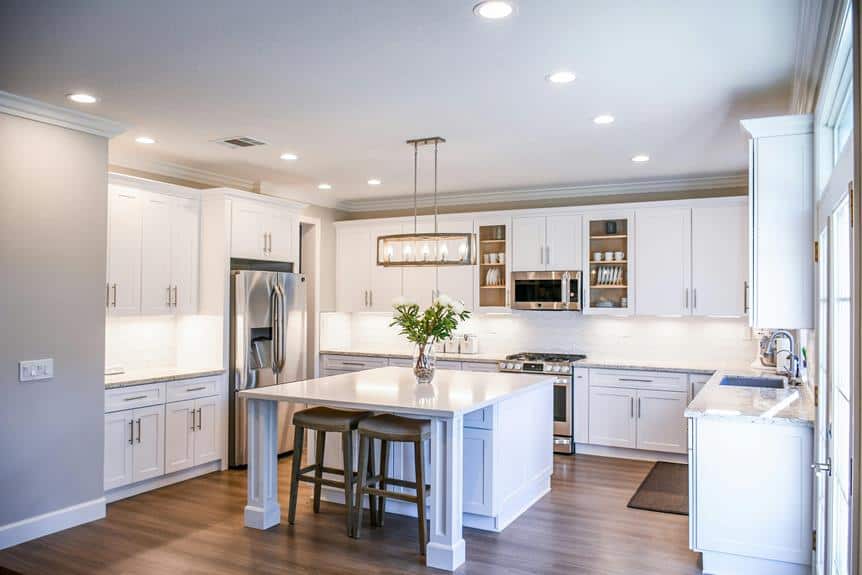Quartz countertops are durable and popular for kitchens and bathrooms. They are made of natural quartz, one of the hardest minerals, and are reinforced with polymer resins. This makes them resistant to stains, scratches, and cracks.
With proper care, they can last a long time, making them suitable for both homes and businesses. Quartz countertops are known for their longevity and low maintenance, as well as their aesthetic value.
Quartz Countertop Composition
Quartz countertops are made from about 90-95% ground quartz and 5-10% polymer resins and pigments. This combination produces dense, non-porous slabs resistant to stains, cracks, and chips, more so than many natural stone surfaces.
The hardness of quartz contributes to the countertop’s durability. The resin in the mixture creates a surface that doesn’t require sealing and resists bacteria, making it suitable for kitchens. Spills do not stain the non-porous surface, maintaining the countertop’s look.
Each slab’s consistent appearance allows buyers to choose a specific style with the assurance it will match their selection. Quartz countertops are durable, low-maintenance, and uniform, offering a practical choice for modern kitchen designs.
Resistance to Wear and Tear
Quartz countertops are more resistant to wear and tear than many other materials because they are very durable. They are made by mixing ground quartz with polymer resins, which makes them less likely to crack or chip unlike natural stone. The material is consistently strong throughout due to the manufacturing process.
The resins in quartz also seal the surface, making it less likely to stain or discolor compared to natural stone, which needs regular sealing. Quartz countertops require less upkeep, which is beneficial for high-use kitchens.
It’s important to recognize that quartz is not as heat-resistant as some materials, withstanding temperatures only up to 175 to 300 degrees Fahrenheit. To avoid heat damage, use coasters or trivets for hot items. Promptly cleaning spills can also prevent stains and help maintain the countertop’s appearance over time.
Impact on Longevity
Quartz countertops are known for their durability due to their engineered composition, making them a strong option for kitchens and bathrooms. They are highly resistant and low maintenance because they are non-porous and do not need frequent sealing. Quartz is also resistant to stains, scratches, and chips, which aids in its longevity.
However, quartz can be damaged by high heat, so it is important to avoid placing hot items directly on the surface to prevent discoloration and cracking. Using trivets and promptly cleaning spills, especially from dark liquids, will help maintain the countertop’s condition.
With proper care, quartz countertops can last for many years, providing both beauty and sustained functionality.
Maintenance and Care Requirements
Quartz countertops are low maintenance and can be cleaned with mild, nonabrasive cleaners. They do not require the regular sealing that materials like marble or granite do, because quartz is nonporous and naturally waterproof. For everyday cleaning, use a soft cloth or sponge with water and gentle soap. This keeps the countertops shiny and sanitary without the need for special pH-neutral cleaners.
However, quartz is not completely heatproof. Avoid placing hot pans directly on the surface to prevent damage. Instead, use hot pads or trivets.
Following these maintenance guidelines will help quartz countertops remain durable and visually appealing over time.
Heat and Stain Resilience
Quartz countertops can resist heat up to 300 degrees Fahrenheit. They are less heat resistant than granite or marble because the resins in quartz can be damaged by high temperatures. It’s recommended to use heat pads or trivets to prevent heat damage like discoloration or cracking.
Quartz is good at resisting most stains and doesn’t need regular sealing like natural stone does. However, it can still be marked by substances like dark liquids if they are not cleaned up quickly.
The material is strong against cracks and chips, more so than natural stone. However, it is sensitive to extreme heat and sunlight, which can fade its color.
In short, quartz countertops are durable but have limits to their heat and stain resistance. Care should be taken to protect them from high temperatures and spills to maintain their appearance over time.
Repair and Damage Mitigation
Repair techniques are important for maintaining quartz countertops. Quartz is more resistant to damage than granite or marble, but it can still suffer from chips and scratches. To fix minor scratches, homeowners can use a soft cloth and non-abrasive cleaner.
Chips may require a quartz repair kit with color-matched epoxy or resin. After the repair material cures, sanding is necessary to make the area match the rest of the countertop.
Quartz countertop repairs are generally cheaper than natural stone repairs because it’s easier to match the material. Repair costs vary based on damage severity, but they are generally affordable. When selecting materials for kitchen remodeling, consider both the initial cost and the long-term repair needs.
Quartz offers durability and easy repair, making it a cost-effective choice for kitchens. Regular maintenance and proper repair techniques help keep quartz countertops in good condition for many years.




